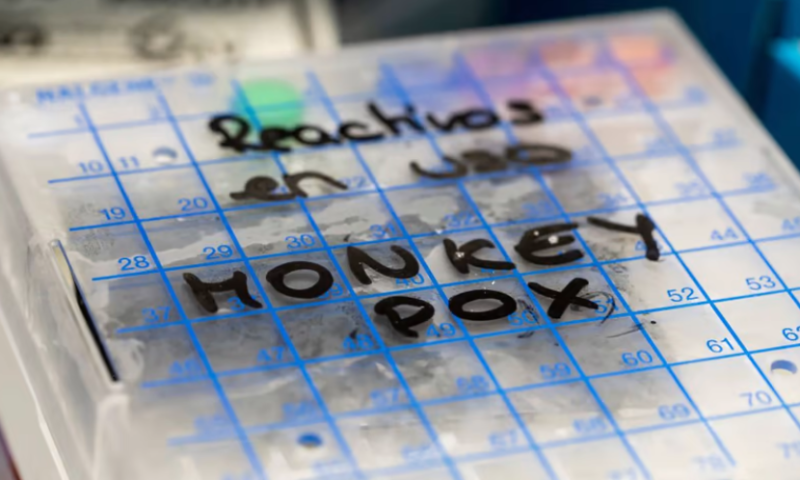Though the global number of recorded monkeypox cases continues to climb—passing 4,100 last week, according to the Centers for Disease Control and Prevention (CDC)—many researchers and epidemiologists believe those figures are dramatically underestimating the size of the outbreak because of a lack of testing, including in the U.S.
The diagnostic manufacturer Cepheid says it plans to develop a PCR test specifically for monkeypox. It will be designed to run on the company’s scalable GeneXpert hardware for laboratories of various sizes. That hardware—more than 40,000 instruments, the company says—has been installed in 180 countries.
Working in collaboration with BioGX, which makes reagents for molecular-based tests, Cepheid aims to deliver a diagnostic that can pick out monkeypox from among the several diseases that bear similar symptoms, including the skin lesions and rashes that come with chicken pox, measles, some sexually transmitted diseases and medication-associated allergies.
“Our FleXible Cartridge program gives Cepheid the ability to work with external partners to develop accurate tests quickly when the need arises,” Chief Scientific Officer David Persing, M.D., Ph.D., said in a statement. In the past, the company has worked to develop tests for outbreaks of anthrax, tuberculosis, swine flu, Ebola and the coronavirus behind COVID-19.
BioGX, meanwhile, previously worked with the CDC to produce a multiplex test that checks for monkeypox and orthopoxviruses using the cartridge-based GeneXpert system. Now, it’s working with Cepheid to validate that test for widespread commercial use.
“Regional response teams need a PCR test that is fast and easy to implement when they suspect an outbreak due to a novel pathogen,” said BioGX Chief Scientific Officer Michael Vickery, Ph.D.
Per data collected by the CDC, the U.S. has only officially logged about 200 cases of monkeypox so far, while European hot spots including the U.K., Spain and Germany have counted three to four times more.
But scientists believe the outbreak has silently spread much further in the U.S. Many say they have been unable to trace transmission of the infectious disease, according to a report from NPR. This includes cases where a person has come down with the virus without traveling to areas where infections are high, and, without having known, had close contact with another infected person.
Monkeypox symptoms can last from two to four weeks, including signs similar to smallpox such as fever, rashes and swollen lymph nodes, with some cases turning severe. The World Health Organization recommends PCR tests be performed on samples taken from skin lesions.
This past May, Cepheid gained a European approval plus an emergency authorization from the FDA for its latest rapid molecular test for COVID-19. The Xpert Xpress CoV-2 plus test includes additional genetic targets compared to the company’s earlier versions to help address new mutations of the coronavirus. Results are available in 20 minutes using GeneXpert analyzers.
“From the beginning of the pandemic, we have been keenly focused on staying ahead of SARS-CoV-2 genetic drift and have designed our tests in anticipation of current and potential future variants,” Persing said at the time. “The high sensitivity of this test is now especially important for recently announced Test-to-Treat initiatives, for which early detection is important for achieving the best clinical outcomes of antiviral therapies.”

